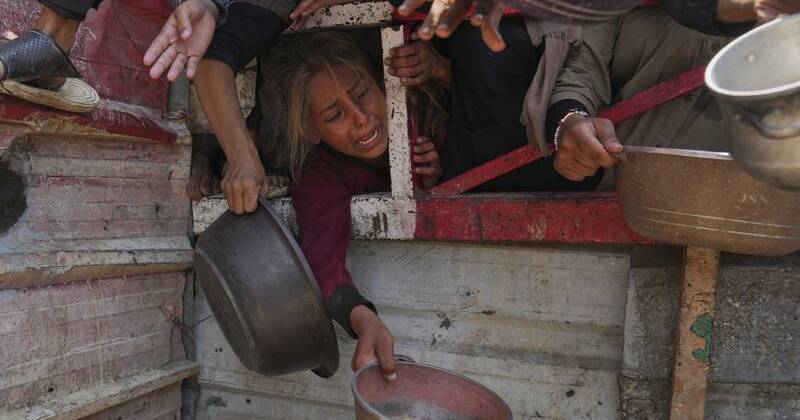
Israeli air strikes and gunfire have resulted in the deaths of at least 42 people in Gaza, according to Palestinian health officials and local ambulance services. The violence coincides with ongoing humanitarian crises and stalled ceasefire negotiations. Witnesses reported that gunfire targeted a crowd waiting for aid trucks near the Zikim crossing in northern Gaza, where at least a dozen individuals were killed. Staff at Shifa hospital confirmed the fatalities, which included people who had gathered in hopes of receiving food and supplies.
The Israeli military stated that it had fired warning shots to disperse the crowd, claiming it was responding to an “immediate threat” and asserting that it was unaware of any casualties. A witness, Sherif Abu Aisha, recounted the chaotic scene, explaining that people rushed towards what they initially believed to be aid trucks, only to realize it was the Israeli military’s presence that prompted the gunfire. He tragically noted that his uncle was among those killed, emphasizing the dire need for food: “We went because there is no food … and nothing was distributed.”
In further violence, Israeli air strikes claimed the lives of four individuals in an apartment building in Gaza City. Additionally, another strike in the Muwasi tent camp in Khan Younis resulted in at least eight fatalities, including four children, according to the Nasser hospital. Reports from hospital morgues indicated that at least nine more people were killed by Israeli fire while attempting to access aid through the Morag corridor in Khan Younis.
Ceasefire negotiations between Israel and Hamas have stalled, following a decision by the United States and Israel to withdraw their negotiating teams on March 15, 2024. Israeli Prime Minister Benjamin Netanyahu stated that his government is exploring “alternative options” to ceasefire discussions. In contrast, a representative from Hamas suggested that negotiations could resume next week, describing the withdrawal of delegations as a pressure tactic. Mediators from Egypt and Qatar emphasized that the pause in talks is temporary, although they did not provide a timetable for resumption.
The humanitarian situation in Gaza remains dire, with the United Nations and various experts warning of a potential famine. Wael Shaaban, who runs a charity kitchen in Gaza City, expressed the urgent need for food, stating, “We only want enough food to end our hunger.” This week, Israel reported that over 250 trucks carrying aid from the UN and other organizations entered Gaza, a significant reduction from the approximately 600 trucks that were entering daily during the last ceasefire, which ended in March.
International pressure is mounting on Israel to address the humanitarian crisis. Over two dozen Western-aligned nations and more than 100 humanitarian and human rights organizations have called for an end to the conflict, criticizing Israel’s blockade and its new aid delivery model. The UN human rights office noted that more than 1,000 Palestinians have died since May while attempting to secure food, primarily near newly established aid sites.
In a response to the escalating situation, Israel stated it would allow airdrops of aid as requested by neighboring Jordan. Nevertheless, Philippe Lazzarini, the head of the UN agency for Palestinian refugees, cautioned on social media that airdrops are “expensive, inefficient and can even kill starving civilians.” The ongoing violence and humanitarian need underscore the urgency for a resolution to the crisis in Gaza, where many families are struggling to survive amid the conflict.






